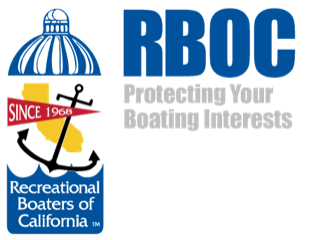As anticipated, the Governor has just signed into law the golden mussel budget trailer bill AB 149. This is the legislation that increases the cost of the current maximum DMV-issued quagga \ zebra sticker from $20 to at least $30 to help fund the golden mussel efforts. The enacted legislation:
Expands the current quagga and zebra mussel sticker fee to include golden mussels and rename the stickers as the “invasive mussel infestation prevention sticker.”
Increases the current $20 maximum quagga \ zebra mussel prevention fee as follows:
If the invasive mussel infestation prevention fee is due between January 1 and December 31 of any even-numbered year, the fee shall not be less than fifteen dollars ($15) and not more than twenty-one dollars ($21).
If the invasive mussel infestation prevention fee is due between January 1 and December 31 of any odd-numbered year, the fee shall not be less than thirty dollars ($30) and not more than forty-two dollars ($42).
The above amounts shall be adjusted for inflation every odd-numbered year using the California Consumer Price Index to the nearest whole dollar value.
Moves $20 million from the Invasive Species Account to the Department of Food and Agriculture to fight invasive species.
Move $20 million from Wildlife Conservation Board grants to the Department of Fish and Wildlife to address invasive mussel infestations including golden mussels.
Establishes the intent of the Legislature to enact subsequent legislation to provide structural balance to the Harbors and Watercraft Revolving Fund, established pursuant to Section 85 of the Harbors and Navigation Code. This may include an adjustment to the invasive mussel prevention fee to fully fund the Department of Fish and Wildlife and Department of Parks and Recreation’s costs to address invasive mussel species.
Requires the Department of Fish and Wildlife by December 31, 2026, to review all approved plans and require all plans that do not specifically address all invasive mussel species known to be present in bodies of water in the state as of January 1, 2026, to be updated or revised appropriately to include all invasive mussel species, on or before September 30, 2027.
Requires every invasive mussel species to be addressed in a plan no later than 180 days from the date that the species is listed in a regulation. The Department of Fish and Wildlife shall approve plans or provide written comments and suggestions on plan deficiencies within 180 days from the date of plan submission.
RBOC shares the objectives of the just-recently-amended AB 149 to enhance the current efforts to prevent the infestation and spread of nonnative, invasive golden mussels into additional waterways and water delivery infrastructure. Our advocacy efforts continue on the issues that RBOC and others have identified with this legislation as enacted:
Piecemeal - The legislation is a piecemeal approach on an important issue that deserves a comprehensive, multi-disciplinary dedication of resources with the engagement of the various agencies, departments, divisions, stakeholders and beneficiaries.
Boater Fee Focus - While the measures identify and dedicate tens of millions of additional state funds for these efforts, they impose additional fees on only one stakeholder: the owners of recreational vessels.
New fees place yet another obstacle in front of boaters who are already deterred by constantly-changing prohibitions and restrictions being imposed on a case-by-case basis for individual bodies of water. There are locations where boaters are paying $120 or more to decontaminate their boats, avoid 30-day quarantines, and launch them at a lake.
Interstate Impact - As currently drafted, SB 149 requires nonresident vessels to obtain and display a California Invasive Mussel Infestation Prevention Fee sticker to operate on nonmarine waters within the state. This inadvertently creates a regulatory gap on Lake Tahoe and Topaz Lake. Both lakes straddle the California–Nevada border, and thousands of vessels cross jurisdictions during a single boating season. This oversight risks undermining decades of collaborative work between California and Nevada agencies, the Tahoe Regional Planning Agency [TRPA], and local partners.
Decontamination - Attention must be given to approaches to minimize the disruptions to on-the-water recreation without compromising the prevention and eradication efforts. These should include enhanced decontamination facilities, as well as an extension of inspections to the variety of non-motorized craft that are placed into the water at locations other than launch ramps and present a risk of spreading infestation, such as kayaks, canoes, rafts and other vessels.
Commercial Ships - The measures also fail to identify and address the most prevalent source of the introduction of invasive species in our waterways, which is commercial ship ballast water. A high priority must be placed on new measures to effectively prevent future occurrences and place responsibility and accountability on these sources of infestation.
These issues are essential to an effective, balanced effort to prevent, control and eradicate golden mussels, and RBOC will continue to be engaged to accomplish this shared objective.

